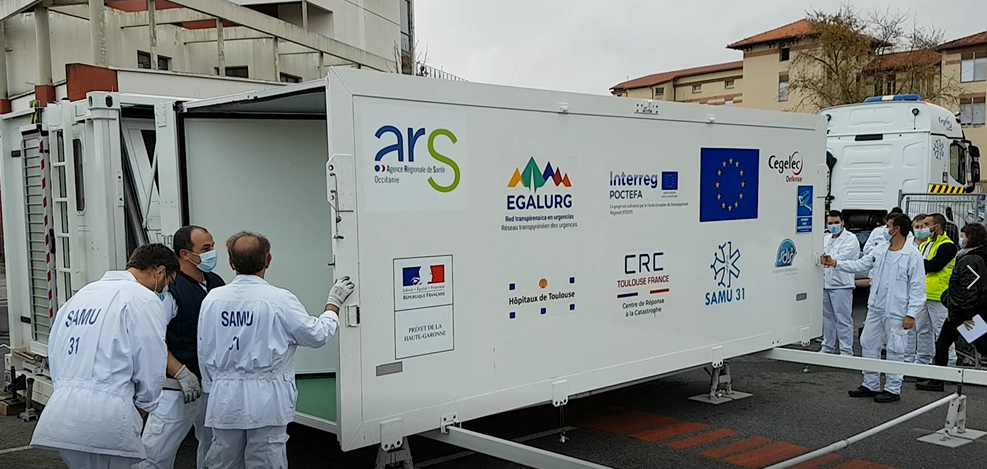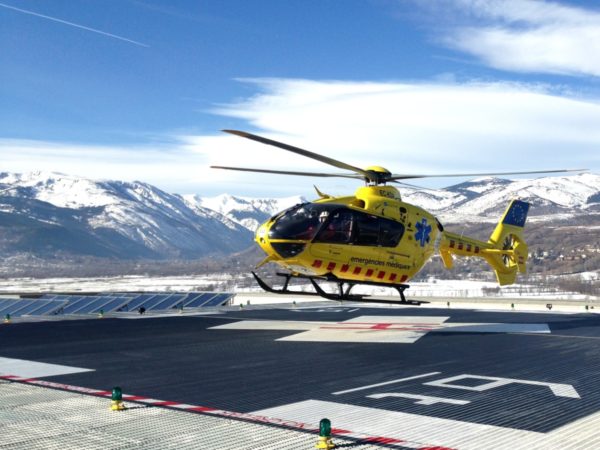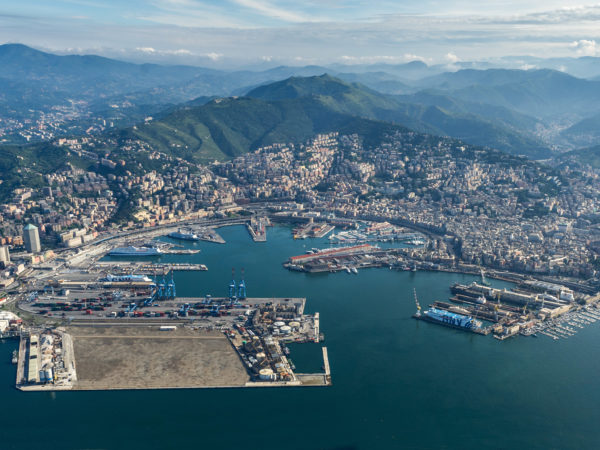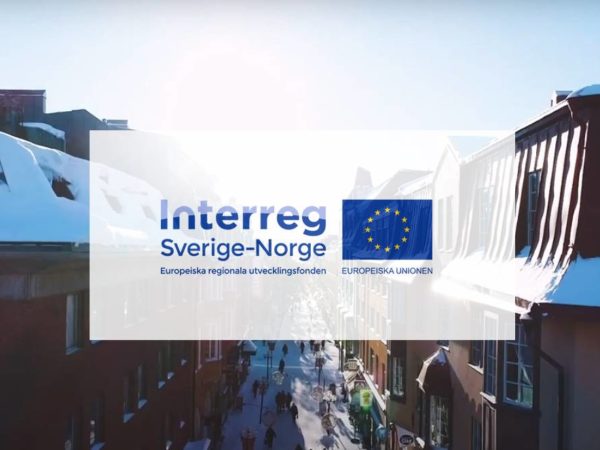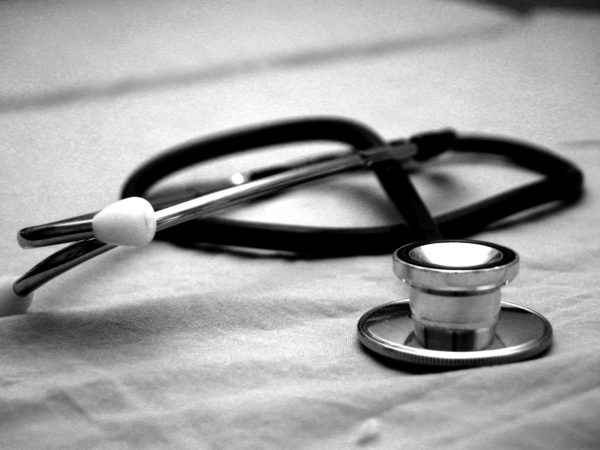“Our mobile hospital is unique in Europe and it can be deployed in 20 minutes on any site”
Europe is seeing a resurgence in COVID-19 cases, but this time, regions are better prepared and have the mechanisms to respond to the crisis faster and in a more coordinated way. Many entities and institutions all over the geography find in European projects another useful tool they can use when medical resources are scarce and hospitals struggle to provide sufficient care.
Sophie Mourgues and Vanessa Houzé-Cerfon, from the University Hospital Centre of Toulouse (France), explain how European projects have helped tackle the pandemic in the Occitanie region, at the South of France. “Currently, we have 29 active European initiatives running in our hospital”, they highlight.
Sophie Mourgues and Vanessa Houzé-Cerfon belong to one of these institutions, the University Hospital Centre of Toulouse (from now on, the CHU), and deal with this pandemic on a daily basis. Sophie is the head of the so-called ‘Europe team’ which is part of the Research and Innovation department of the CHU, an essential pillar in the present moment to come up with innovative solutions against COVID-19. Vanessa is the research coordinator at the Emergency Medical Service (the ‘SAMU’ Unit) and also, she’s the project manager of EGAL-URG, a European cooperation project lead by professor Vincent Bounes.
Focusing our attention on innovation, do you believe there has been innovative initiatives at your hospital during the first wave of the pandemic?
Yes, indeed. When this all started, a ‘COVID-19 crisis unit’ was implemented at the CHU in order to centralize and coordinate all ideas for clinical research or technological innovation. In total, more than 90 projects were developed, also thanks to the response that the CHU medical team gave to this crisis.
One of these projects is EGAL-URG, financed by the European cooperation programme Interreg POCTEFA. Could you explain a bit what this project is about?
It aims at facilitating access to emergency healthcare for the population. To this end, several actions are about to be taken: an international congress for emergency and disaster will be organized, along with workshops in France and Spain. The project will also develop exercises to be prepared to crisis situations and common trainings such as a European Master for Disaster Medicine. Also, international guidelines will be written thanks to an exhaustive review for sanitary devices established for large European events of more than 100,000 people.
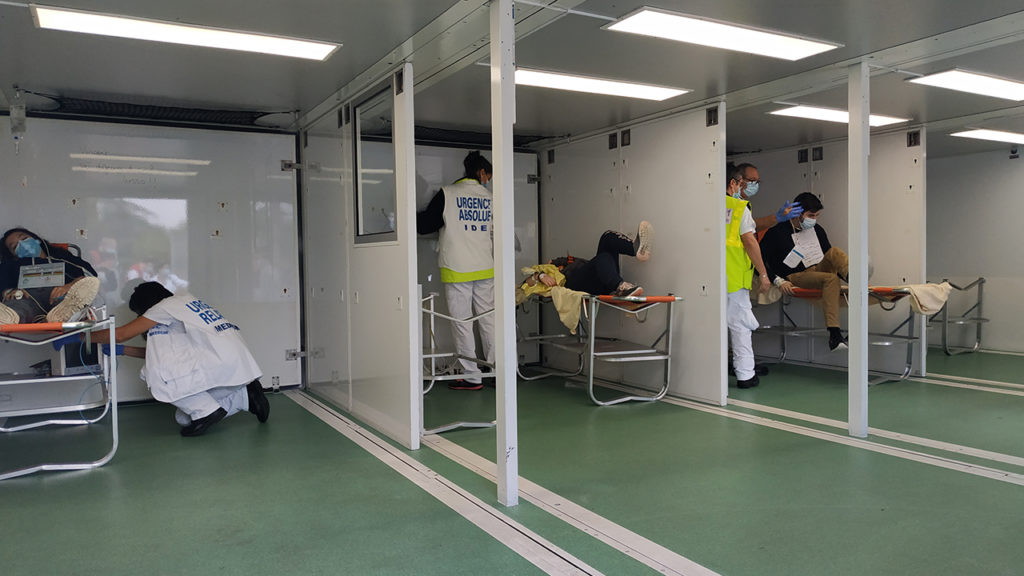
And more specifically, how is innovation connected to the EGAL-URG project?
In the sense that innovative communication tools and IT platforms will be developed, as for instance a common directory for deeply traumatized people or an operational directory of cross-border health resources. A field hospital has also been created for the cross-border area to be located at large meetings or as a response to a disaster. This hospital is a shelter consisting of five portable units equipped with medical material that can take care of 18 patients. It is transportable on a truck.
How interesting! Please, tell us more about this mobile hospital. How do you call it? How does it help during the COVID-19 crisis?
We call it with the French acronym UMPEO, which stands for ‘Multipurpose Mobile Unit Europe Occitanie’. It weighs 18 tons, is 70 m2 in size, heated and air conditioned. It allows treating patients in separate spaces and even has water, electricity and oxygen reserves. It can also create its own telephone and Wi-Fi networks. This mobile hospital is unique in Europe, and can be deployed in 20 minutes on any site with a flat ground of 30 meters (see a video about the mobile unit at the end of the article).
Has this unit ever been installed yet somewhere?
Yes, it has been deployed in September 2020, during a test period of 3 weeks, in several cities of the French cross-border region ‘Haute-Garonne’: Luchon, Saint Beat, Saint Gaudens, Aspet, Boulogne sur Gesse and Salies du salat. Furthermore, the mobile hospital has been used for massive screening of COVID-19 to the most isolated populations of the Haute-Garonne. Some reservists were mobilized by the prefecture of Haute-Garonne and the SAMU31 staff was trained to technical handling of the shelter. In total, 1,322 samples were taken during the COVID tour.
Would you say that cooperation through European projects represent an opportunity when handling crisis like this one?
By all means. That’s why the University Hospital Centre of Toulouse is really involved in a European scale and currently has 29 active European projects. In our everyday life, the investigators working on these projects financed by the European Union are supported and assisted by us, the Europe Team. Basically, we inform on the financial opportunities that Europe and cooperation among regions offer, ensure administrative monitoring of projects in accordance with the requirements of European funds and guarantee that skills are linked to the departments of the hospital in order to fulfill objectives, among other tasks.
What struck me is the engagement and the massive participation of citizens during this COVID tour. People really understood the importance of this screening and were extremely respectful.
Mrs. Hélène Verchere
Volunteer nurse
The presence of this mobile hospital in our city allowed us to increase the population’s awareness in a significant way and encouraged people to get tested more spontaneously compared to a classic structure taking sample.
Mrs. Jennifer Courtois-Perissé
Mayor of Rieumes
The action of bringing a new sanitary service in areas deprived of direct access to screening has reassured some inhabitants. They were pleased to be taken into consideration on their place of residence by a structure detached from the CHU Toulouse.
Mr. Jean-Philippe Durieu
President of the association for reservists
In this video you will see how the mobile hospital works:
If you’d like to know more about the project, visit the EGAL-URG website.
More information can also be found on Interreg POCTEFA Programme’ s website.
